7 Powerful Ways Quinoa Promotes Healthy Aging
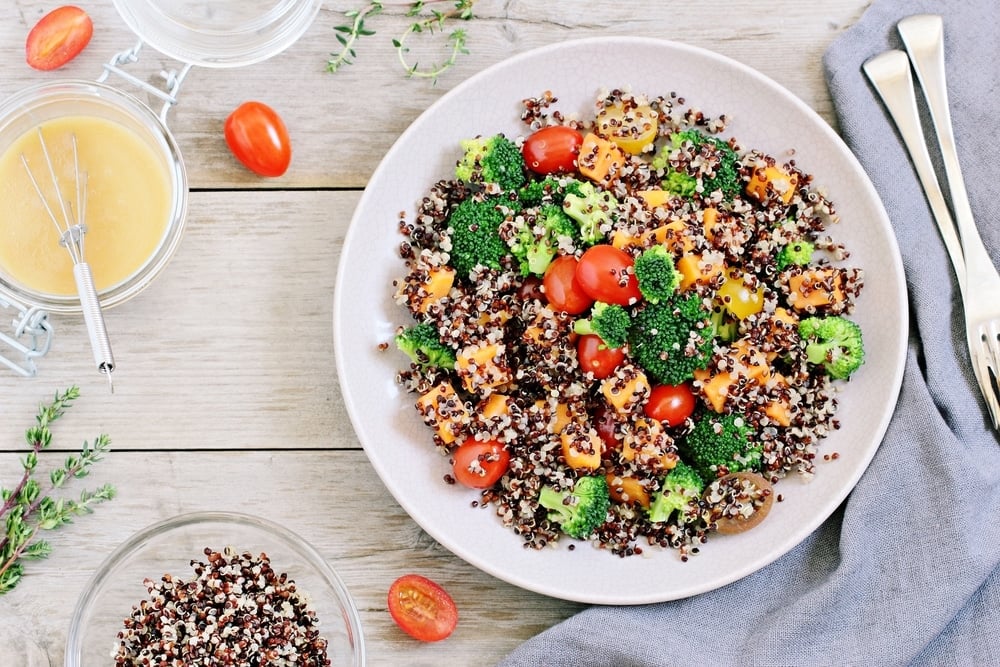
As we age, maintaining a healthy and balanced diet becomes crucial for longevity and overall wellness. One superfood that stands out in promoting healthy aging is quinoa!
Packed with essential nutrients, quinoa offers numerous benefits that can help you stay vibrant and active. Here, we’ll explore seven powerful ways quinoa supports healthy aging, highlighting why it deserves a prominent place in your diet.
1. It’s Packed with Protein and Fiber
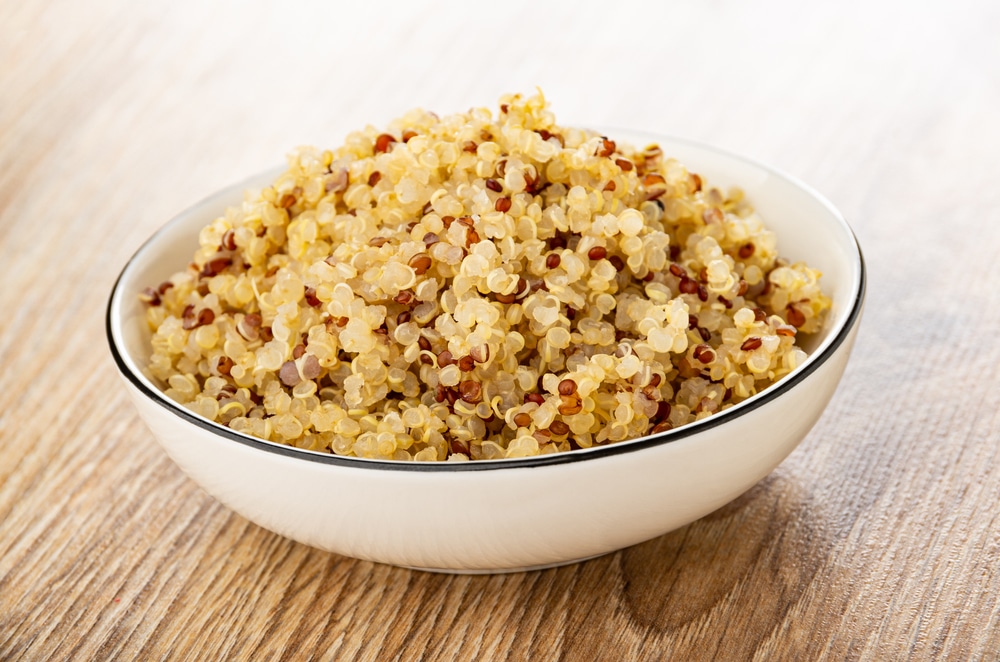
Photo Credit: Shutterstock
Fun fact: although technically a seed, quinoa is classified as a whole grain. One cup of cooked quinoa offers around 8 grams of protein and 5 grams of fiber!
Quinoa is also a complete protein, meaning it contains all nine essential amino acids that our bodies can’t make on their own.
And, unlike other grains, quinoa also contains lysine, an essential amino acid typically found in sports supplements marketed toward those looking to add lean muscle. Lysine has also been said to strengthen the immune system and increase serotonin levels.
Moreover, quinoa is high in fiber, which is great for your digestive health. Some scientists have even found that the fiber in quinoa is linked to a longer life.
2. It’s Rich in Antioxidants
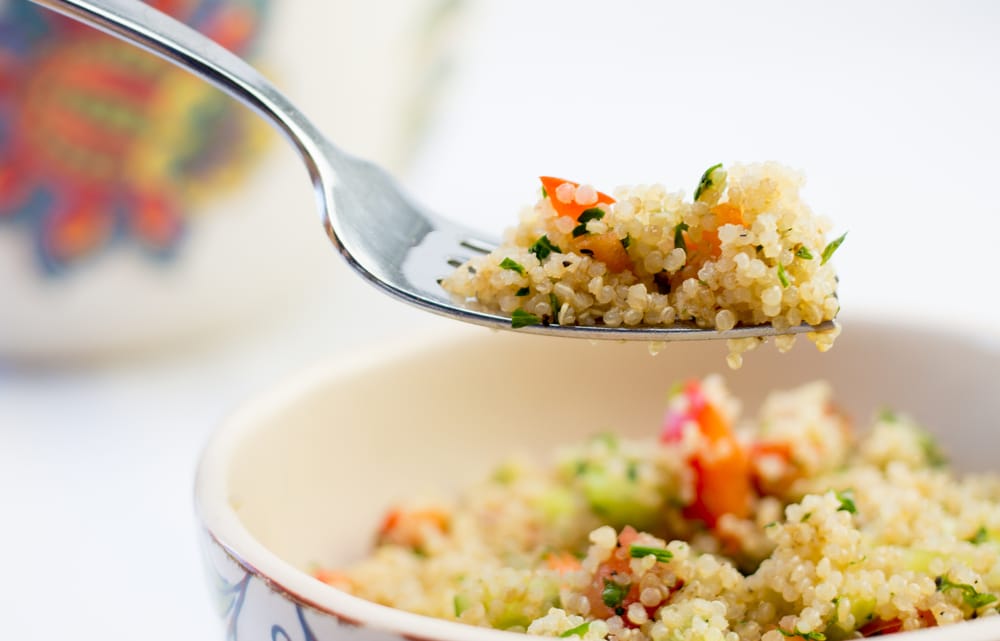
Photo Credit: Shutterstock
Antioxidants help reduce inflammation in the body and may also help prevent cell damage from free radicals, which can cause conditions such as cancer and cardiovascular disease.
Quinoa also contains quercetin and kaempferol, two flavonoids known to have anti-inflammatory, anti-viral, anti-cancer, and anti-depressant effects.
3. It Can Help Reduce the Risk of Colon Cancer
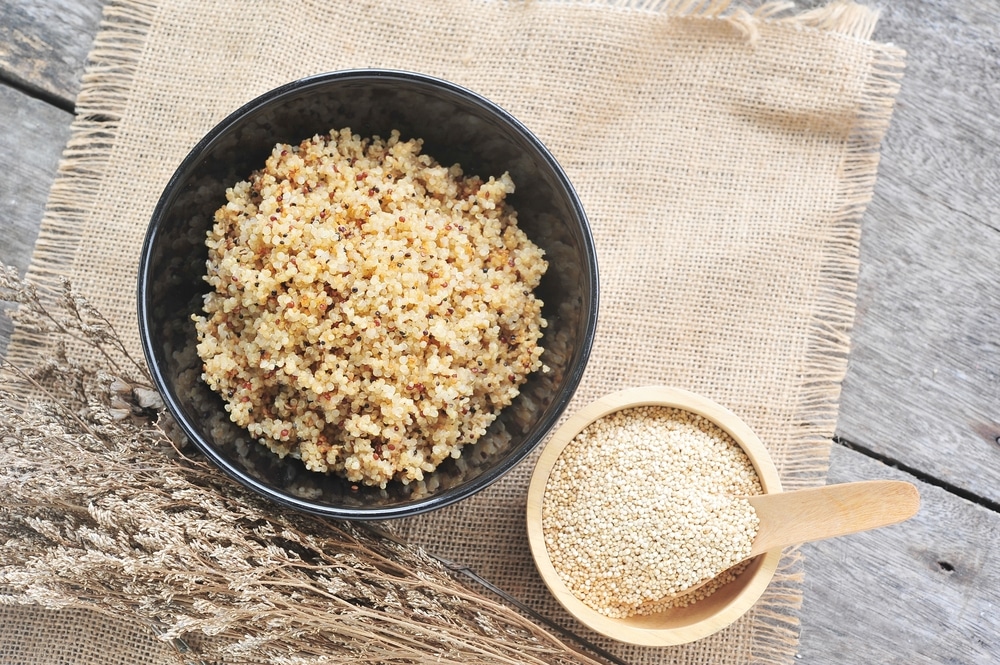
Photo Credit: Shutterstock
Quinoa is packed with fiber—and research shows that a high-fiber diet is associated with a lower risk of colon cancer.
The main reason? Fiber moves waste through your colon faster, so any harmful substances don’t have a chance to take hold and cause cell damage that can lead to colon cancer.
4. It’s a Heart-Healthy Plant-Based Protein

Photo Credit: Shutterstock
Since quinoa contains all nine essential amino acids, it’s an ideal protein choice for those looking for nonanimal sources. It is also a great source of nutrients such as iron, zinc, magnesium, folate, and vitamin B1. (All of the good stuff!)
Moreover, research suggests that eating a more plant-based diet may help reduce your risk of cardiovascular disease, regardless of age. (So it’s never too late to start!)
5. It’s Low in Sugar
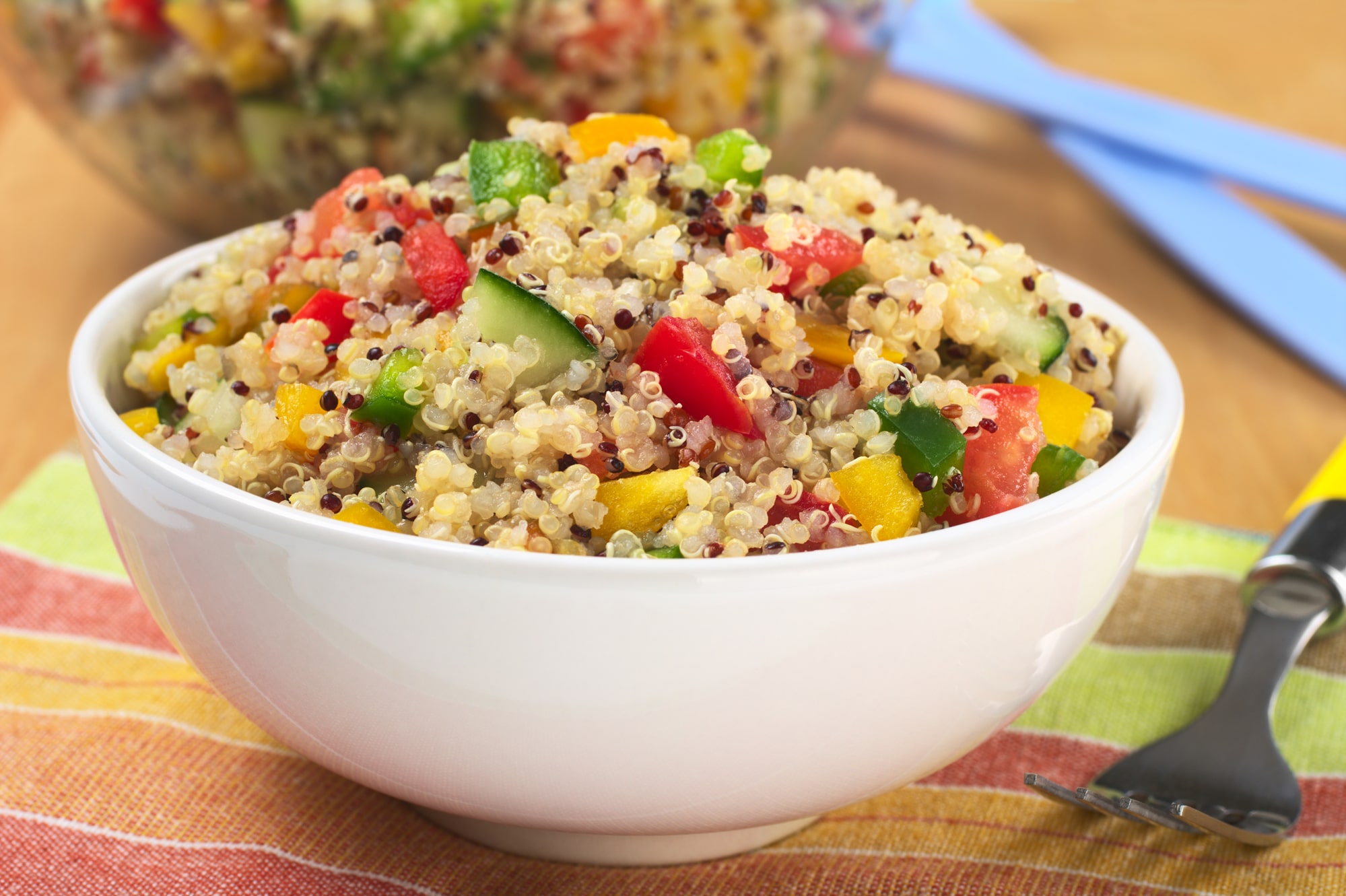
Photo Credit: Depositphotos
Quinoa is low in sugar and carbohydrates, which is helpful for anyone trying to prevent or manage diabetes. It also has a low glycemic index, which measures how rapidly certain foods raise blood sugar levels.
Foods high on the glycemic index are known to cause hunger and can lead to obesity and chronic diseases like type 2 diabetes and heart disease.
6. It May Help Lower Your Diabetes Risk
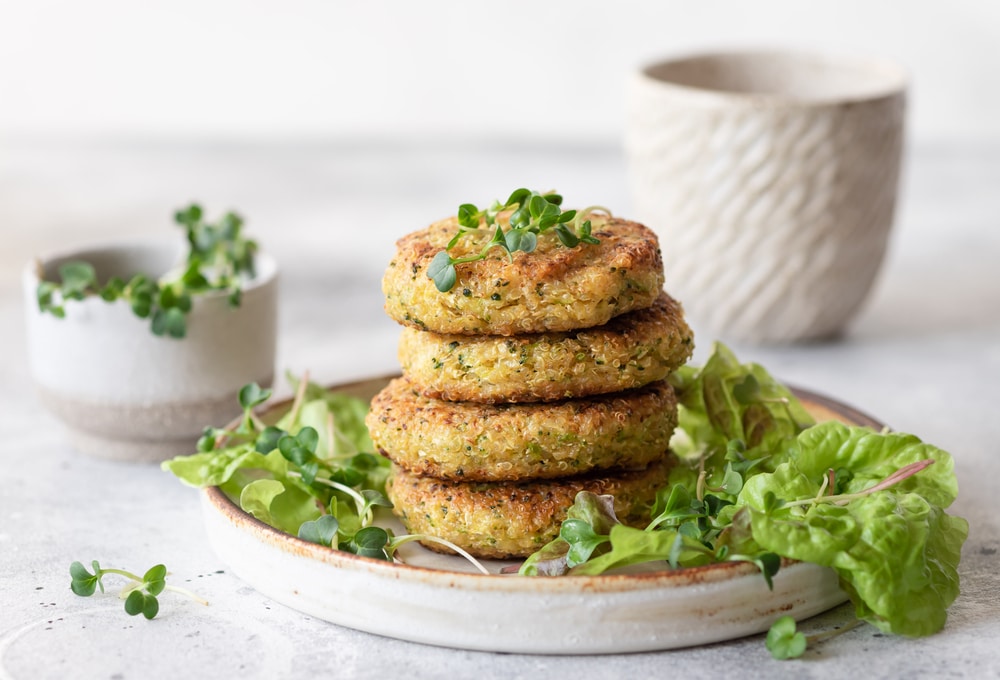
Photo Credit: Shutterstock
Along with its magnesium content, which can help reduce your risk of Type 2 diabetes, one study shows that eating quinoa, in particular, may help reduce the risk in older adults with prediabetes.
Ultimately, eating quinoa in addition to fruits, veggies, and whole grains can significantly help prevent diabetes.
7. It’s a Healthy Gluten-Free Option
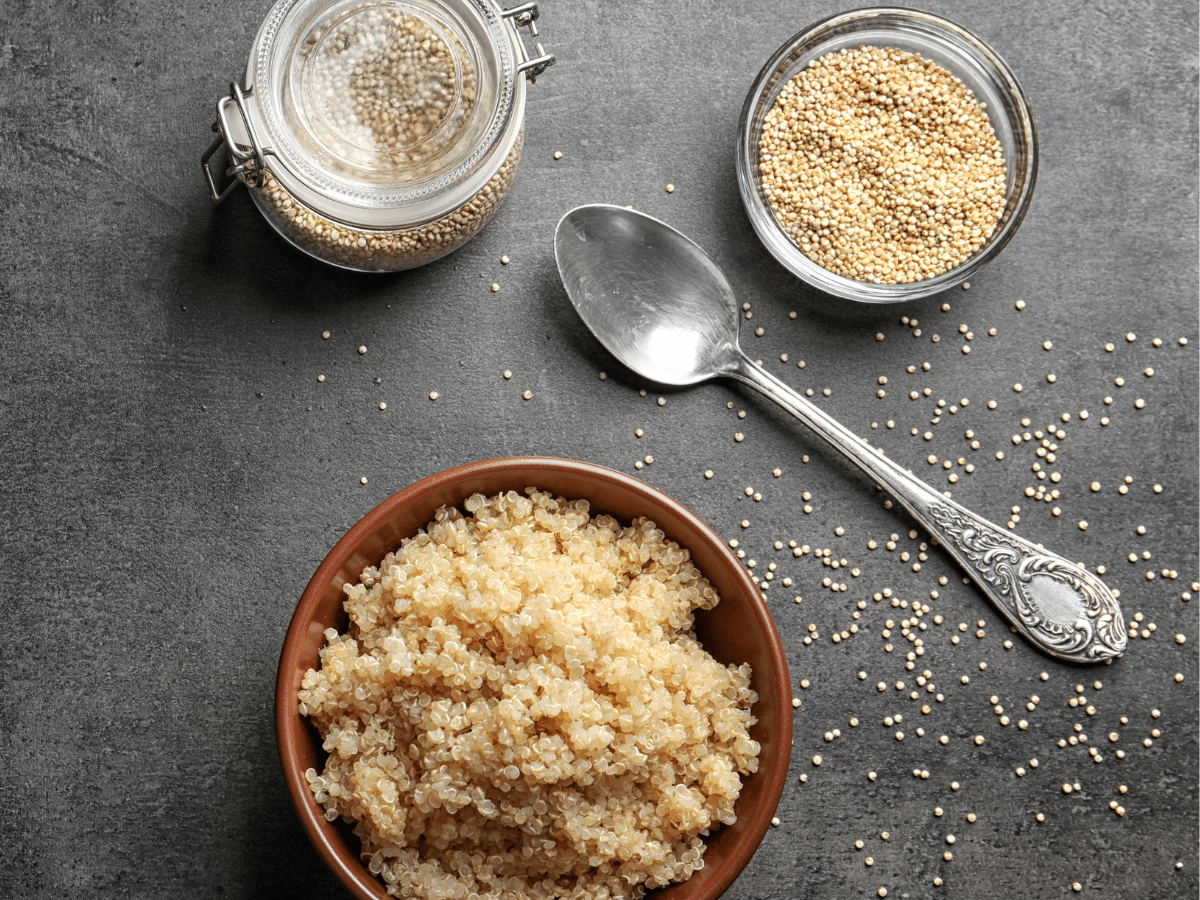
Photo Credit: Shutterstock
If you suffer from celiac disease or choose to follow a gluten-free diet, quinoa is a great option.
What’s more? Studies have found that opting for quinoa over typical gluten-free ingredients, such as refined tapioca, potato, corn, and rice flour, can significantly boost the amount of nutrients and antioxidants you get.
Need some recipe ideas for this incredible superfood? Here are 21 healthy quinoa recipes to add to your diet.
